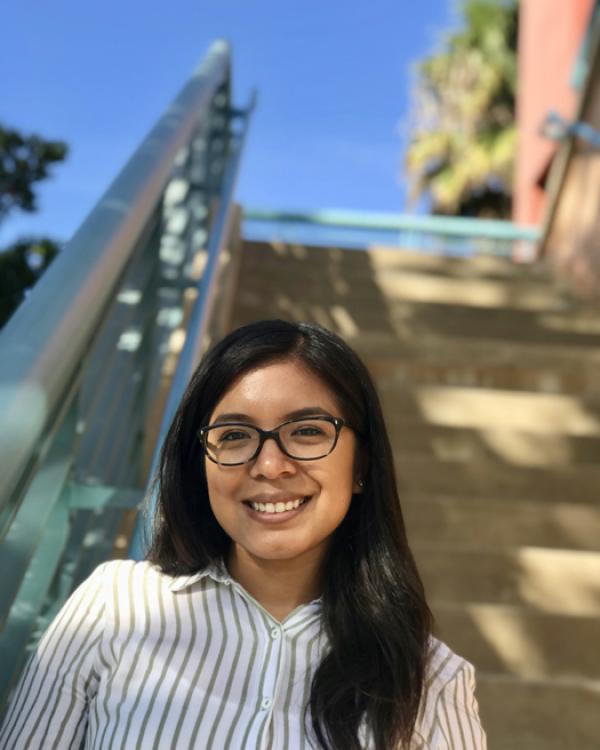
This week we caught up with Diana Chagolla, a doctoral student in the Department of Education specializing in the area of Culture and Development; her advisor is Dr. Laura Romo. Diana obtained her bachelors degree in Sociology from San Diego State University (SDSU).
GGSE: After reading your bio, it's clear that mentoring other students is a priority for you. Can you briefly describe your experiences with mentoring at UCSB and why you think it's important?
Chagolla: During my first year as a graduate student, I served as a mentor to first-generation college students in the New Heights Grad-Undergrad Mentoring program offered through the UCSB Chicano Studies Institute (CSI). Through this experience I encouraged students to become involved in undergraduate research opportunities with faculty members and guided them in their preparation for graduate school and careers. As a teaching assistant for Education and Chicana/o Studies, I encourage students to talk to me about their college experiences, and interests with the objective of helping them form career or graduate school goals. In addition, as a graduate research assistant for the CSI’s Latino health and adolescent development lab, I have supervised undergraduate students conducting research projects centered on Latinx populations. Here, I have aimed to mentor students on research practices that can have a positive influence for communities. Via these experiences I have met students who despite the challenges and barriers they may face to succeed academically, have developed resilience to persist in an unfamiliar academic environment. There are many students at UCSB eager to become involved with research opportunities. As graduate students we have the potential to disseminate information about graduate school and research opportunities to undergraduate students and pave the way for future generations. I think it is imperative to foster a welcoming atmosphere at UCSB, and engaging students with these opportunities is one way of achieving that. Establishing mentoring relationships with undergraduate students is especially important for students from diverse disciplines and backgrounds, and those who are first generation college students.
GGSE: Your current research focuses on how Latina mothers communicate with adolescent daughters about healthy lifestyles. Why did you choose this focus? What does your research look like into this topic?
Chagolla: My personal experience witnessing family members and community members suffer from health conditions that are preventable has prompted my dedication to address pressing health concerns confronting the Latino community through research and practice. Ultimately, I am interested in how culturally relevant intervention programs can promote positive health communication among families by providing them with more resources and guidance on how to live healthier lives. My current project examines how Latina mothers and adolescent daughters communicate about the importance of maintaining a healthy weight status to achieve positive health outcomes. I am finding that mothers who have open relationships with daughters tend to encourage healthier eating and exercising habits, and are more likely to caution daughters about chronic health diseases associated with being overweight. For my qualifying exams, I plan to further examine research on Latino parent-child health communication, youth development and health psychology/education.
GGSE: Do you have any ideas about what you'd like to do after you receive your Ph.D.? Have your ideas changed overtime?
Chagolla: My ideas have changed a little, but they remain similar in one objective. One thing I know for sure is that I aspire to obtain a career that allows me to bridge research with practice, with the main objective of promoting a culture of health among communities that are underserved. Ideally, I aspire to be a professor who conducts research on health education/promotion, parent-child communication and the development of culturally relevant programs. As a professor, my goal is to also serve as a mentor in order to strengthen the resilience and persistence of first-gen graduate and undergraduate students to reach their goals. Although a position in academia is my main career objective, I would also greatly enjoy conducting mixed methods research for a health institute, non-profit, or organization to better inform practice related to health prevention and health education.